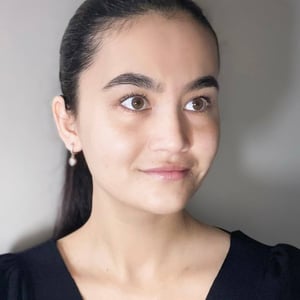The Diplomat | Author

Niginakhon Saida
Niginakhon Saida is a scholar whose research interests focus on gender, Islam, and politics in Central Asia.
Nigina is a graduate of the OSCE Academy in Bishkek, where she studied politics and security (Central Asia). She is an adjunct professor at Webster University in Tashkent and teaches political science and sociology related classes. She is also a master’s student at the University of Glasgow in Eurasian studies. Her research interests focus on gender, Islam, and politics in Central Asia. Nigina has a degree in European Studies: Human Rights and Democratization in the Caucasus from Yerevan State University as well.
You can find her on Twitter.
Nigina was a Summer 2022 intern with The Diplomat’s Crossroads Asia section and is now a regular contributor to The Diplomat.

July 18, 2024
Brides Too Soon: The Rising Trend of Early Marriages in Uzbekistan
By Niginakhon Saida

June 27, 2024
New Amendments Target Parents Seeking Islamic Education for Children in Uzbekistan
By Niginakhon Saida

June 05, 2024
Imams in Uzbekistan Asked to Stay off Social Media
By Niginakhon Saida

May 14, 2024
Women as Wives: How Uzbekistan’s Justice System Fails to Serve Women
By Niginakhon Saida

April 19, 2024
How Are Patterns of Labor Migration From Uzbekistan Changing?
By Niginakhon Saida

April 15, 2024
Uzbekistan’s Educational Challenge: Scaling up for a Booming Population
By Niginakhon Saida and Sher Khashimov

April 09, 2024
Uzbekistan Aims to Allow Private Medical Institutions to Deliver Babies
By Niginakhon Saida

March 28, 2024
What’s Behind Central Asia’s Umrah Fever?
By Niginakhon Saida

February 09, 2024
Why Is Tashkent Reluctant to Reconnect with Ethnic Uzbeks Abroad?
By Niginakhon Saida

January 04, 2024
Central Asia’s Water Crisis Is Already Here
By Jahan Taganova, Anna Shabanova-Serdechna, and Niginakhon Saida

December 01, 2023
Uzbekistan Takes a Stance Against Promoting or Endorsing Polygamy
By Niginakhon Saida

